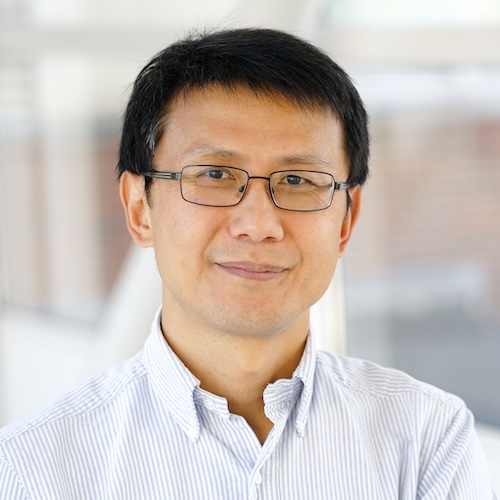Research Interests:
- Elucidating epigenetic regulation in human malignancies
- Understanding transcriptional regulation of tumor suppressors and oncogenes
- Identifying novel epigenetic mechanisms contributing to tumor progression and metastasis
- Developing novel epigenetic inhibitors for cancer treatment
Biography
Dr. Jia Fang joined the faculty of Roswell Park Comprehensive Cancer Center in 2017 as an Associate Member/Associate Professor. He came to Roswell Park from the H. Lee Moffitt Cancer Center & Research Institute where he started as a junior faculty and received his tenure as an Associate Member/Professor. He was also an Associate Professor at the University of South Florida College of Medicine.
After receiving his Ph.D. in 1999, Dr. Fang started his postdoctoral training at the Neuroscience Center, University of North Carolina at Chapel Hill. In 2001, he joined Dr. Yi Zhang's laboratory as a postdoctoral fellow at the UNC Lineberger Comprehensive Cancer Center and the Howard Hughes Medical Institute, studying epigenetics and chromatin biology. He then established his independent laboratory at the H. Lee Moffitt Cancer Center & Research Institute.
Positions
Roswell Park Comprehensive Cancer Center
- Associate Professor of Oncology
- Department of Pharmacology & Therapeutics
University at Buffalo
- Associate Professor
Background
Education and Training
- 1999 - PhD - Shanghai Institute of Biochemistry, Chinese Academy of Sciences, Biochemistry and Molecular Biology
- 2000-2006 - Postdoctoral - University of North Carolina at Chapel Hill, Howard Hughes Medical Institute, Epigenetics
Professional Memberships
- Member - Molecular Pharmacology and Cancer Therapeutics Graduate Program, Member - Cancer Genetics CCSG (Cancer Center Support Grant) Program
Research Overview
The Fang laboratory focuses on dissecting various epigenetic modifications in physiological and pathological processes, and understanding their roles in tumorigenesis and metastatic progression. Recent findings in the lab have elucidated a novel molecular network in which different chromatin modifying enzymes, catalyzing histone methylation, DNA methylation and histone deacetylation, coordinate for transcriptional repression of tumor suppressor genes and in turn promote epithelial-to-mesenchymal transition and tumor progression. The role of the identified mechanisms in the post-implementation silencing of pluripotency genes is also being investigated. The long-term goals of these research programs are to identify novel diagnostic and therapeutic modalities.
The ongoing projects employ a wide range of biochemical, molecular and genetic approaches. Generation of loss-of-function mouse models will be established to further understand the functional significance of different epigenetic regulators in vivo. High throughput screening assays are also being developed in the lab for the screening of small molecule inhibitors targeting the identified epigenetic mechanisms for therapeutics.
Publications
- Sun L, Fang J*. E3-independent constitutive monoubiquitination complements histone methyltransferase activity of SETDB1. Mol Cell, 2016, 62(6):958.
- Sun L, Kokura K, Izumi V, Koomen JM, Seto E, Chen J, Fang J*. MPP8 and SIRT1 crosstalk in E-cadherin gene silencing and epithelial-mesenchymal transition. EMBO Rep, 2015, 16:689.
- Chang Y, Sun L, Kokura K, Horton JR, Fukuda M, Espejo A, Izumi V, Koomen JM, Bedford MT, Zhang X, Shinkai Y, Fang J**, Cheng X**. MPP8 mediates the interactions between DNA methyltransferase Dnmt3a and H3K9 methyltransferase GLP/G9a. Nat Commun, 2011, 2:533.
- Kokura K, Sun L, Bedford M, Fang J*, Methyl-H3K9 binding protein MPP8 mediates E-cadherin gene silencing and promotes tumor cell motility and invasion, EMBO J, 2010, 29:3673.
- Plath K*, Fang J*, Mlynarczyk-Evans SK, Cao R, Worringer KA, Wang H, de la Cruz CC, Otte AP, Panning B, Zhang Y. Role of histone H3 lysine 27 methylation in X inactivation. Science, 2003, 300:131.
*Equal contribution
**Corresponding authors
